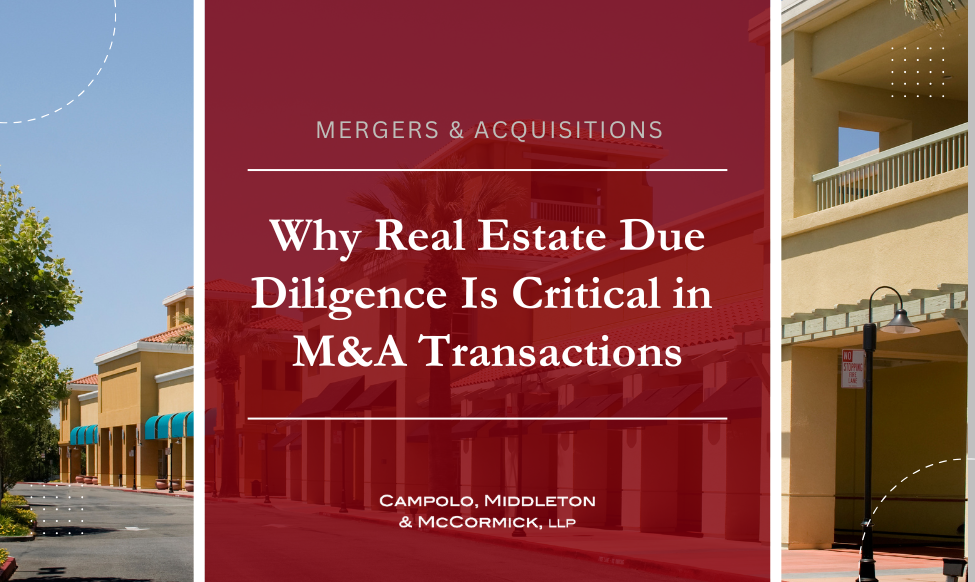Real estate assets—whether owned or leased—can introduce a layer of complexity that is often underestimated in M&A transactions. Whether the transaction involves a portfolio of owned properties or a network of leases, proper due diligence is essential to ensure operational continuity and avoid unexpected costs or restrictions.
For owned real estate, due diligence must include a thorough review of title and zoning issues. Title searches may reveal liens, easements, or encumbrances that affect the property’s use or value. Zoning compliance must also be confirmed to ensure that current and planned operations align with local regulations. If the property was previously used for industrial purposes, environmental assessments may be necessary to identify potential contamination or remediation obligations.
Many jurisdictions impose transfer restrictions or governmental approval requirements on real estate transactions, particularly for commercial properties or properties located in special regulatory zones. In some cases, deeds cannot be transferred without prior consent from local authorities, adding time and complexity to the closing process.
In leased properties, lease assignment provisions are a critical concern. Commercial leases often require landlord consent before a lease can be assigned or transferred, which is typically triggered by an asset sale or a change of control in the tenant entity. Delays in obtaining this consent—or landlords using the event as an opportunity to renegotiate lease terms—can disrupt business operations or increase costs. In addition, buyers must assess lease terms such as renewal rights, escalation clauses, and maintenance obligations, which can significantly affect long-term operating expenses.
Real estate issues often require coordination between legal, real estate, and finance teams to assess legal risks, valuation impacts, and post-closing implications. A proactive approach to identifying and resolving these matters ensures that the physical footprint of the business supports the strategic goals of the transaction without introducing unexpected liabilities.
M&A Deals: Here’s What You Need to Know
Consents and Approvals: The First Gate to Closing an M&A Transaction
How Commercial Contracts Can Make or Break Your M&A Deal
What Really Keeps M&A Deals on Track? A Closer Look at Governance and Fiduciary Duties
The Overlooked Obstacle in M&A: Existing Debt and Its Hidden Risks
Employment & Compensation Issues
For guidance, contact Vincent Costa at vcosta@cmmllp.com or 631-738-9100.

